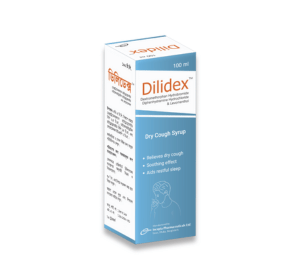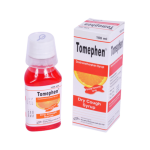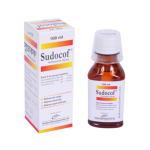Dilidex(Dextromethorphan Hydrobromide, Diphenhydramine Hydrochloride & Levomenthol)

Therapeutic Group: Non-opioid antitussive
Presentation
Dilidex Syrup: Each 5 mL syrup contains Dextromethorphan Hydrobromide BP 6.5 mg, Diphenhydramine Hydrochloride BP 14 mg, and Levomenthol USP 2 mg.
Description
Dextromethorphan is a non-opioid antitussive drug. It exerts its antitussive activity by acting on the cough center in the medulla oblongata, raising the threshold for the cough reflex. Diphenhydramine possesses antitussive, antihistaminic, and anticholinergic properties. Levomenthol has mild local anesthetic and decongestant properties.
Indications
It is indicated as an antitussive, for the relief of persistent, dry, irritating cough and aiding restful sleep.
Dosage & Administration
Adults and children aged 12 years and over: 10 ml, 4 times a day, or as directed by the physicians.
Children under 12 years old: It is contraindicated for children under the age of 12.
The Elderly: Normal adult dosage is appropriate
Side Effects
Diphenhydramine may cause: drowsiness; dizziness; gastrointestinal disturbance; dry mouth, nose, and throat; difficulty in urination; or blurred vision.
Dextromethorphan: dizziness, nausea, vomiting, or gastro-intestinal disturbance may occur. Adverse reactions to menthol at the low concentration present in it are not anticipated.
Precautions
This product may cause drowsiness; if affected, individuals should not drive or operate machinery. Diphenhydramine should not be taken by individuals with narrow-angle glaucoma or symptomatic prostatic hypertrophy. Subjects with moderate to severe renal or hepatic dysfunction should exercise caution when using this product.
Use in Pregnancy & Lactation
Both diphenhydramine and dextromethorphan have been in widespread use for many years without apparent ill consequences. However, there is insufficient information on the effects of the administration of dextromethorphan during human pregnancy. In addition, it is not known whether dextromethorphan or its metabolites are excreted in breast milk. Diphenhydramine is known to cross the placenta and has also been detected in breast milk.
So, it should therefore only be used when the potential benefit of treatment to the mother exceeds any possible hazards to the developing fetus or suckling infant.
Over Dose
The effects of higher doses may include drowsiness, hyperpyrexia, lethargy, respiratory depression, nausea, vomiting, and hyperactivity. Treatment for overdoses should be symptomatic and supportive. Measures to promote rapid gastric emptying and, in cases of acute poisoning, the use of activated charcoal may be useful.
Storage
Do not store above 30 °C. Keep away from light and out of the reach of children.
Commercial Pack
Dilidex Syrup: Each box contains a bottle of 100-ml syrup and a measuring cup.



